Premium Only Content
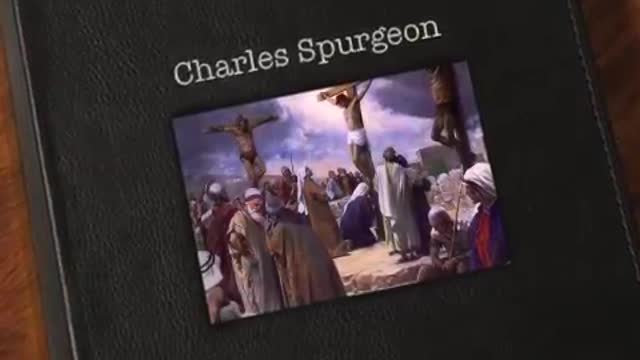
Morning and Evening October 22nd John 16:15 Hosea 14:4
Morning
"I will love them freely."
Hosea 14:4
This sentence is a body of divinity in miniature. He who understands its meaning is a theologian, and he who can dive into its fulness is a true master in Israel. It is a condensation of the glorious message of salvation which was delivered to us in Christ Jesus our Redeemer. The sense hinges upon the word "freely." This is the glorious, the suitable, the divine way by which love streams from heaven to earth, a spontaneous love flowing forth to those who neither deserved it, purchased it, nor sought after it. It is, indeed, the only way in which God can love such as we are. The text is a death-blow to all sorts of fitness: "I will love them freely." Now, if there were any fitness necessary in us, then he would not love us freely; at least, this would be a mitigation and a drawback to the freeness of it. But it stands, "I will love you freely." We complain, "Lord, my heart is so hard." "I will love you freely." "But I do not feel my need of Christ as I could wish." "I will not love you because you feel your need; I will love you freely." "But I do not feel that softening of spirit which I could desire." Remember, the softening of spirit is not a condition, for there are no conditions; the covenant of grace has no conditionality whatever; so that we without any fitness may venture upon the promise of God which was made to us in Christ Jesus, when he said, "He that believeth on him is not condemned." It is blessed to know that the grace of God is free to us at all times, without preparation, without fitness, without money, and without price! "I will love them freely." These words invite backsliders to return: indeed, the text was specially written for such--"I will heal their backsliding; I will love them freely." Backslider! surely the generosity of the promise will at once break your heart, and you will return, and seek your injured Father's face.
Evening
"He shall take of mine, and shall show it unto you."
John 16:15
There are times when all the promises and doctrines of the Bible are of no avail, unless a gracious hand shall apply them to us. We are thirsty, but too faint to crawl to the water-brook. When a soldier is wounded in battle it is of little use for him to know that there are those at the hospital who can bind up his wounds, and medicines there to ease all the pains which he now suffers: what he needs is to be carried thither, and to have the remedies applied. It is thus with our souls, and to meet this need there is one, even the Spirit of truth, who takes of the things of Jesus, and applies them to us. Think not that Christ hath placed his joys on heavenly shelves that we may climb up to them for ourselves, but he draws near, and sheds his peace abroad in our hearts. O Christian, if thou art tonight labouring under deep distresses, thy Father does not give thee promises and then leave thee to draw them up from the Word like buckets from a well, but the promises he has written in the Word he will write anew on your heart. He will manifest his love to you, and by his blessed Spirit, dispel your cares and troubles. Be it known unto thee, O mourner, that it is God's prerogative to wipe every tear from the eye of his people. The good Samaritan did not say, "Here is the wine, and here is the oil for you;" he actually poured in the oil and the wine. So Jesus not only gives you the sweet wine of the promise, but holds the golden chalice to your lips, and pours the life-blood into your mouth. The poor, sick, way-worn pilgrim is not merely strengthened to walk, but he is borne on eagles' wings. Glorious gospel! which provides everything for the helpless, which draws nigh to us when we cannot reach after it--brings us grace before we seek for grace! Here is as much glory in the giving as in the gift. Happy people who have the Holy Ghost to bring Jesus to them.
===
Charles Haddon (C.H.) Spurgeon (19 June 1834 -- 31 January 1892) was a British Particular Baptist preacher who remains highly influential among Christians of different denominations, among whom he is still known as the "Prince of Preachers". He was a strong figure in the Reformed Baptist tradition, defending the Church in agreement with the 1689 London Baptist Confession of Faith understanding, and opposing the liberal and pragmatic theological tendencies in the Church of his day.
Spurgeon was a prolific author of many types of works including sermons, an autobiography, commentaries, books on prayer, devotionals, magazines, poetry, hymns and more.Many sermons were transcribed as he spoke and were translated into many languages during his lifetime. Spurgeon produced powerful sermons of penetrating thought and precise exposition. His oratory skills held throngs of listeners spellbound in the Metropolitan Tabernacle and many Christians have discovered Spurgeon's messages to be among the best in Christian literature.
http://conservativeweasel.blogspot.com/2011/10/daily-devotional-sunday-23rd-october.html
AUAWN1023111
-
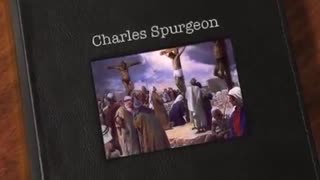 4:01
4:01
Morning and Evening from Spurgeon
3 years agoMorning and Evening December 26th Matthew 28:20 1 Corinthians 15:45
418 -
 4:04
4:04
Morning and Evening from Spurgeon
3 years agoMorning and Evening October 16th Psalm 36:9 John 21:12
1411 -
 4:25
4:25
Morning and Evening from Spurgeon
3 years agoMorning and Evening October 6th Numbers 12:1 John 4:14
113 -
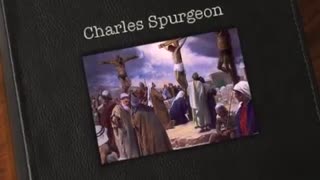 4:54
4:54
Morning and Evening from Spurgeon
3 years ago $0.01 earnedMorning and Evening October 4th 1 John 2:1 Zechariah 14:7
158 -
 4:15
4:15
Morning and Evening from Spurgeon
3 years agoMorning and Evening October 21st Luke 24:38 2 Corinthians 5:14
114 -
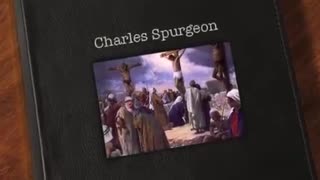 4:20
4:20
Morning and Evening from Spurgeon
3 years agoMorning and Evening October 20th Isaiah 43:6 Ephesians 4:15
1001 -
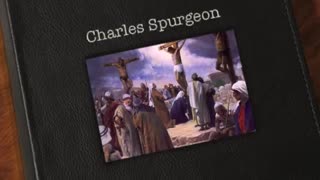 4:12
4:12
Morning and Evening from Spurgeon
3 years agoMorning and Evening October 19th Job 35:10 1 Corinthians 3:1
861 -
 4:08
4:08
Morning and Evening from Spurgeon
3 years agoMorning and Evening October 18th 1 Samuel 15:22 Psalm 65:11
1003 -
 4:09
4:09
Morning and Evening from Spurgeon
3 years agoMorning and Evening October 17th Isaiah 40:11 1 Samuel 27:1
641 -
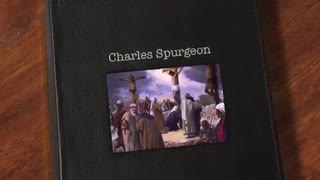 4:08
4:08
Morning and Evening from Spurgeon
3 years agoMorning and Evening October 14th Romans 12:2 Philippians 3:8
181